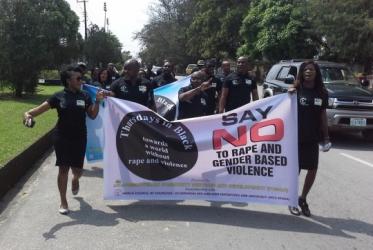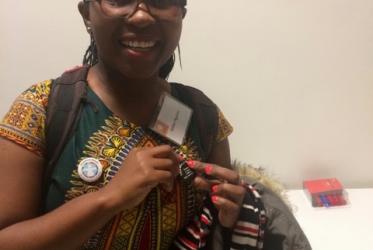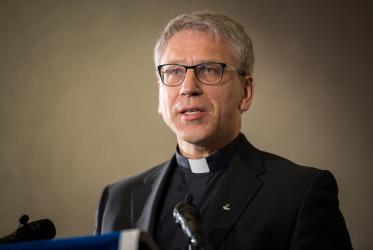Displaying 141 - 160 of 277
In Nigeria, Thursdays in Black is flourishing
26 March 2018
At CSW62, “stories are the heartbeat”
21 March 2018
WCC encourages participation in day of prayer for South Sudan, DRC
16 February 2018
Day of prayer and fasting for peace in South Sudan, Democratic Republic of Congo
23 February 2018
Worldwide
Tveit: Beyond national borders, we are one humanity
23 January 2018
Tveit to World Economic Forum: “Say no to nuclear weapons”
22 January 2018
In Nigeria, WCC workshops focus on human rights
04 December 2017
Tveit: “We are called to embrace the gifts of the others”
07 November 2017
Forum strengthens ecumenical commitment to diakonia
12 October 2017
WCC students study what makes a peace communicator
18 July 2017











